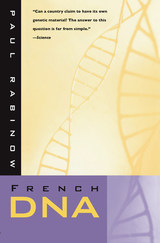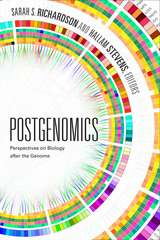
The human genome is the key to what makes us human. Composed of the many different genes found in our cells, it defines our possibilities and limitations as members of the species. The ultimate goal of the pioneering project outlined in this book is to map our genome in detail—an achievement that will revolutionize our understanding of human development and the expression of both our normal traits and our abnormal characteristics, such as disease. The Code of Codes is a collective exploration of the substance and possible consequences of this project in relation to ethics, law, and society as well as to science, technology, and medicine.
The many debates on the Human Genome Project are prompted in part by its extraordinary cost, which has raised questions about whether it represents the invasion of biology by the kind of Big Science symbolized by high-energy accelerators. While addressing these matters, this book recognizes that far more than money is at stake. Its intent is not to advance naive paeans for the project but to stimulate thought about the serious issues—scientific, social, and ethical—that it provokes. The Code of Codes comprises incisive essays by stellar figures in a variety of fields, including James D. Watson and Walter Gilbert and the social analysts of science Dorothy Nelkin and Evelyn Fox Keller. An authoritative review of the scientific underpinnings of the project is provided by Horace Freeland Judson, author of the bestselling Eighth Day of Creation.
The book’s broad and balanced coverage and the expertise of its contributors make The Code of Codes the most comprehensive and compelling exploration available on this history-making project.


Contemporary developments in human genetics are profoundly meaningful, both for the rapidity of scientific discoveries and for their personal and social implications. The Human Genome Project, a worldwide effort to map the 50,000 to 100,000 genes making up the human blueprint, is creating new ways of understanding ourselves as individuals, as parents, as members of a family, an ethnic group, a species. Almost every day yet another medical detective finds a genetic clue to the long-running mystery of human identity.
In 1992, the University of Iowa Humanities Symposium provided a public forum to examine the issues—moral, conceptual, legal, and practical—in modern genetics that are crucial to all of us. This strong, challenging volume is a collection of the major essays presented by historians, philosophers, and other academic humanists to a multidisciplinary audience of molecular and clinical geneticists, genetic counselors, humanists, and members of the public. The essays explore the historical background, philosophical implications, and ethical issues related to the Human Genome Project as well as other developments in modern genetics.
The questions raised in these essays are dramatic and troubling. What kind of knowledge is being produced by molecular geneticists? Do individual human genomes differ significantly from each other? How much do females and males differ from each other at the molecular level? Is there any genetic basis for distinguishing among racial or ethical groups? Can current practices in genetics counseling be compared to the earlier eugenics movement? Will current research lead to updated views on genetic “normalcy” or even “superiority”?

Contributors. Russ Altman, Rachel A. Ankeny, Catherine Bliss, John Dupré, Michael Fortun, Evelyn Fox Keller, Sabina Leonelli, Adrian Mackenzie, Margot Moinester, Aaron Panofsky, Sarah S. Richardson, Sara Shostak, Hallam Stevens
READERS
Browse our collection.
PUBLISHERS
See BiblioVault's publisher services.
STUDENT SERVICES
Files for college accessibility offices.
UChicago Accessibility Resources
home | accessibility | search | about | contact us
BiblioVault ® 2001 - 2024
The University of Chicago Press









